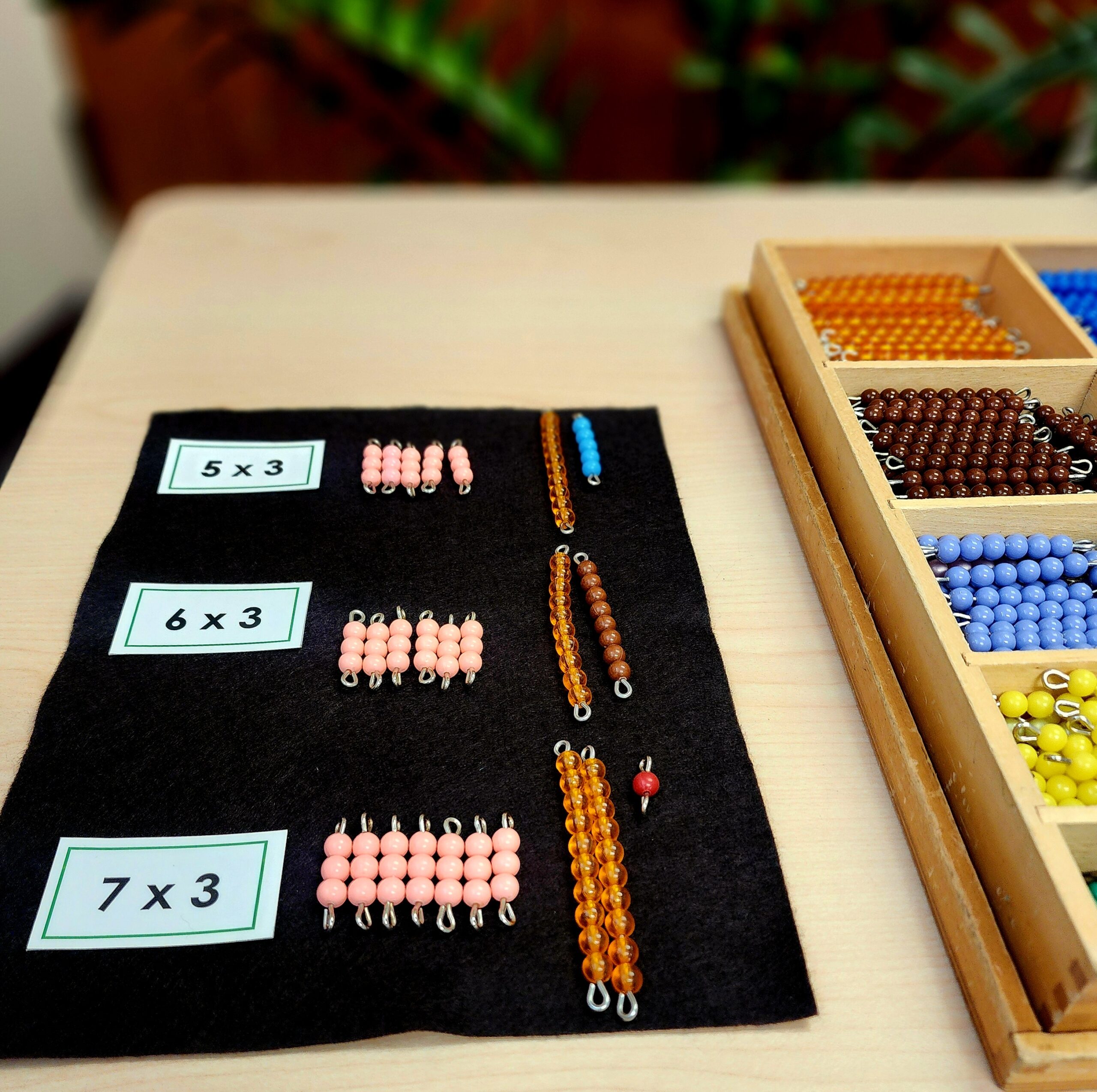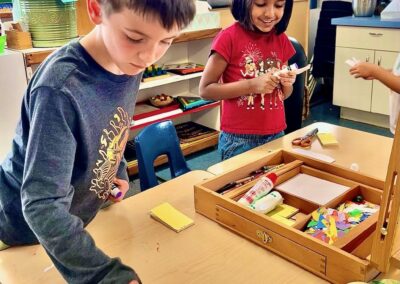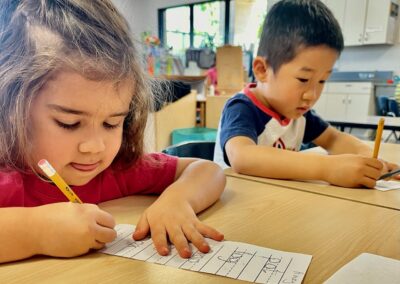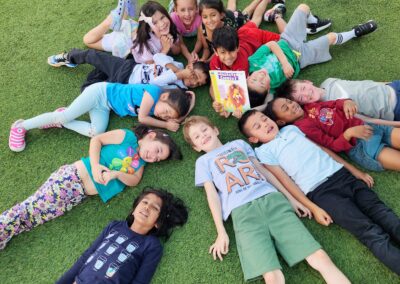AFM EDUCATION CURRICULUM

Ahwatukee Foothills Montessori Curriculum
Montessori education is an individualized learning model where each child follows a unique lesson plan and is introduced to new concepts at their own readiness, allowing them to progress through the curriculum at their own pace.
Mathematics:
The Montessori math materials present mathematical concepts in a concrete form, enabling even young children to engage in linear counting and operations with enjoyable materials that capture their interest. Those who complete Ahwatukee Foothills Montessori’s preschool and kindergarten program develop a strong mathematical foundation and a deeper understanding of concepts compared to peers who rely on memorization. The Montessori math curriculum moves well beyond counting and cardinality, though those skill sets certainly come into play as students begin to explore more complicated concepts. AFM kindergarten students use their algebraic thinking skills when they engage with Montessori materials to explore the four major operations of addition, subtraction, multiplication, and division. These operations are expanded to include multi-digit numbers in both static and dynamic forms, allowing students to write and record questions while fluently reading mathematical sentences.
Concepts such as time, measurement, fractions, and graphing are explored through both the experiences with the classroom materials and hands-on experimenting. Unlike traditional methods that emphasize memorization, AFM’s math curriculum is designed to cultivate a deep and concrete understanding of math concepts, ensuring that knowledge is retained throughout their academic journey.
Language and Literacy:
Ahwatukee Foothills Montessori’s language and literacy curriculum emphasizes key areas such as phonemic awareness, phonics, fluency, vocabulary, and comprehension. Our dedicated teachers seamlessly integrate literacy development into the daily routine, engaging students in enjoyable activities that introduce concepts like rhyming, compound words, and the difference between singular and plural. This curriculum fosters self-expression by enriching vocabulary, syntax, and grammar. We promote oral language skills through storytelling and re-telling exercises, encouraging children to participate in meaningful conversations. Our individualized reading instruction follows a carefully crafted approach that starts with phonemic awareness and progressively nurtures the growth of confident, competent readers.
Science, Geography and Engineering:
Students learn about Earth and Space Science, studying weather and the various patterns and motion of the sun, moon, and planets. They learn about how weather patterns and techtonic shift within the Earth can change the geography of the landscape. In Life Sciences, students learn the differences and similarieties between organisms in the phylum Chordata. They learn to identify the bones, organs and systems of the human body. Science is also explored through real-life experiences, such as examining leaves with magnifying glasses, observing insect behavior, and undertaking simple experiments, fueling curiosity about the scientific world.
In geography, AFM students study both cultural and structural aspects, learning the names and definitions of countries, states, capitals, and various geological formations like archipelagos and isthmuses. Children start with basic globes and puzzle maps to learn about land and water and gradually delve into specific countries, using international books and photos to enrich their understanding of diverse cultures. Kindergarten students take a closer look at a specific continent or country, learning details about the customs, dress, and food preferences of the people who live there.
Kindergarten students engage in hands-on Engineering experiences and experiments that foster independent research and investigation. Throogh their use of the Scientific Method, students learn how to define simple problems or questions, collect and interpret data, and analyze the results.
Sensorial and Practical Life:
Sensorial materials help develop tactile, visual, and spatial perceptions, with beautifully designed tools that entice experimentation and adapt to the child’s developmental needs over time. The practical life curriculum fosters order, concentration, coordination, and independence through activities that teach self-care skills and environmental stewardship, as children master practical tasks like pouring, buttoning, and threading while preparing for more complex challenges as their abilities grow.
Come Visit & Compare!
An individual guided tour of our campus with our director is available by appointment. Contact us for more info.
Enrollment is wait list based. Please submit your pre-enrollment application to begin the enrollment process.





